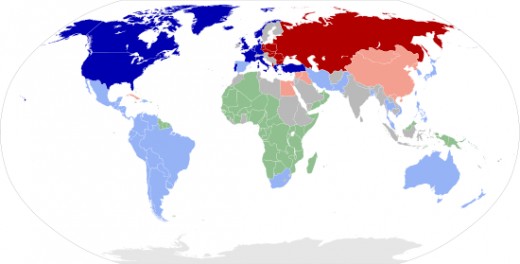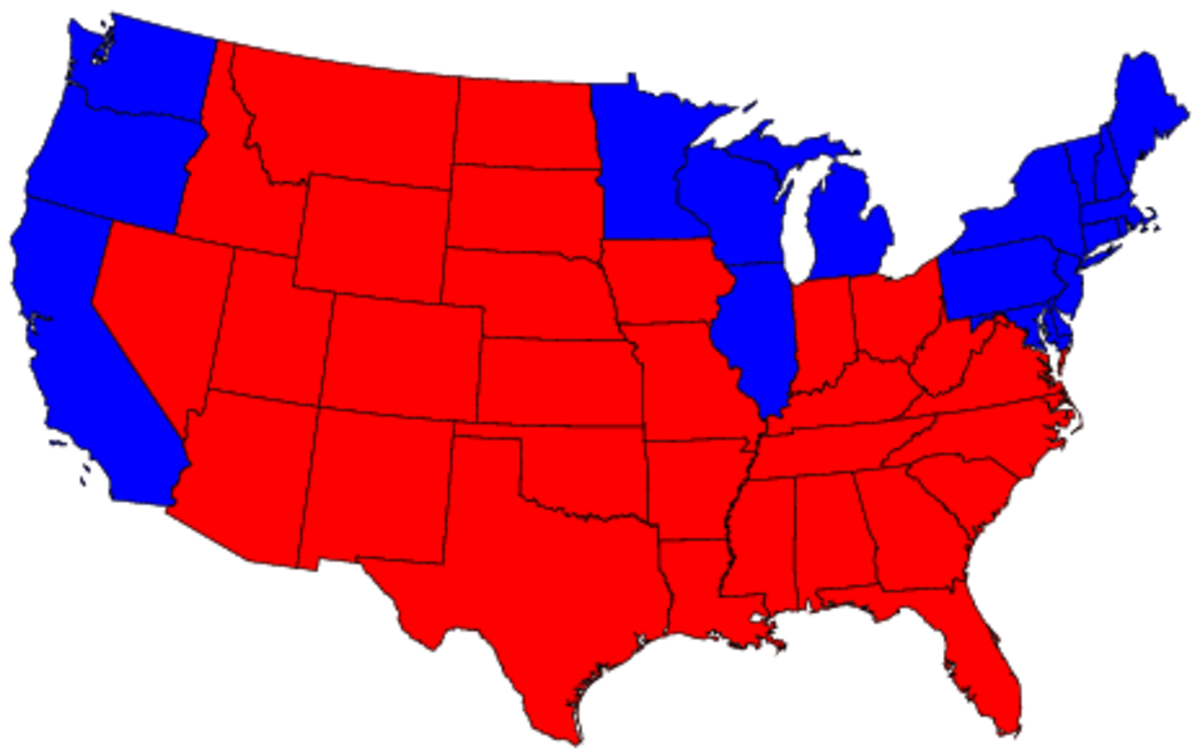A cold war getting colder

It is definitely a new Cold War that is on the horizons manifested in the international system. Rather it as if the old Cold War never left, only this time more bitter and brittle. Perhaps we can coin a phrase for it a "neo-Cold War".
Big powers, small powers, allies and client states, a status quo, regardless of the changes in the world system or what is termed as globalization because of the continuing respect for power, the strong versus the weak, rivalry and unadulterated competition.
In the early 1990s, when the then Soviet Union was dismantled, everyone breathed a sigh of relief the Cold War was over, that a system of bipolarity was ending in favor of multilateralism where the hallmark of the new world was going to be greater cooperation and understanding instead of confrontation.
But 20 years down the road, things are not at all rosy. While the ideological schisms that divided the world in the Cold War period of the 1950s, 1960s, 1970s and 1980s may have gone, it has definitely changed its garbs into different sheep clothing.
Despite the fact that the world has become more fractious as the former Marxist regimes of east were dismantled and new independent states created, the new post-Cold War era is alive, well and kicking to use a hackneyed phrase, characterized by polarity and division.
The old separation between East and West still perks its head but it's in new forms. The nuclear threat hasn't gone but merely dampened with new states like Korea and Iran now wanting slices of the nuclear pie. In fact, it hots up and cools down. Developments are camouflaged by real political, diplomatic, and economic interests.
The post-Cold War society continues to be shackled in an international order based on superpower politics where America has its own allies, proteges and friends and so is the case with Russia, formerly the Soviet Union since 1917.
In this new international system, new states, small and medium-sized nations as well as great powers continue to prefer to have their traditional alliances.
The United States for instances has immediate backyards in Canada, Mexico, and towards its south, in central and Latin America. Further to the east, it has Europe of course, Turkey, Israel and a motley of Arab countries like Jordan, Saudi Arabia, Gulf states and Iraq and many others in different corners of the globe.
The same is the case for Russia under its new political regime and government. Her allies continue to be in the surrounding region like the newly independent states, and some in eastern Europe and traditional allies like for instance Syria and to some extent Iran.
Such alliances became reflected in international forums like the United Nations and its Security Council where Russia has for the most part taken a cold or 'opposition' role vis-à-vis the United States. In the Security Council vote in March 2011 on resolution to take "all necessary measures" against Libyan leader Mummar Gaddafi and impose a no-fly zone, Russia and China abstained.
In the post-Cold War period, global trends did not emerge but reinforced. The United States and Europe continued to exuberate the same capitalist values and ethics regardless of their differences on various economic issues.
The same is the case with regards to Russia and China, who espoused the same Marxist ideology and the latter still does, although in a radically different watered down form.
Today these two countries are posing themselves in a competitive race with Europe and the United States, using all political, diplomatic and economic ammunitions at their disposal.
The last veto by Russia and China of European sponsored Security Council resolution condemning the Syrian government for its excessive use of force against its civilians has angered the United States. Backed by Britain, Ireland, Germany and Portugal, the resolution was doomed to failure from the start, and this, after much behind the scenes negotiations that fell far short of international sanctions.
Regardless of the reasons for the veto, in the final analysis, it boils down to the interplay of the old political struggle that exists between the West and the East and says much about the division of the international system that is now refocused much more on economics and business machinations rather than power politics. Global strategy is being played from an economic point of view.
Russia's relationship with Syria started in the 1960s and 1970s when it was courted by the Soviet Union because of super-power rivalry and economic and military relationships.
These elements continued to exist in the following decades, and more so today. Syria continues to be a reliable ally and an important military market, with Russia eyeing its strategic location in the area versus Turkey, Israel, Jordan and Iraq, all of whom fall under American influence with the latter being occupied by the United States.
In addition to that, Russia is desperate to be in the economic league of the Americans, Europeans and even other Arab countries and build its economic capacities that has hitherto been squandered on the old days on military armaments and foreign aid in the hope of creating the permanent revolution and making the world red.
Today Russia is anxious to industrialize and modernize as quickly as possible and is almost in a race via Europe, America and China.
For its part China today is still ideological, but it is based more so on economic competition with the slight touches of the political. One of its strong points is it has geared its production to mass consumer goods, and has somehow allowed every form of international company to set up production facilities on its territory that would be exported to the world under brand names with "made in China" labels.
It voted against the Security Council resolution on Syria not because of pure political and diplomatic reasons, but didn't want western countries to get another economic prize of war. As the Qaddafi regime fell in late August 2011, and the transitional council took over, many European and American companies began signing contracts to build a post-war Libya.
In a way the post-Cold War is more complicated. Before, the divisions were well known. Today, their prongs continue to exist but in a different format.








